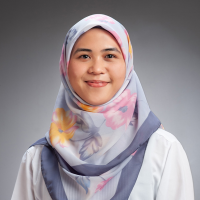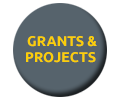
Wellington-based medical researchers have received up to $127,306 in Research For Life’s latest funding round.
Research For Life funds innovative quality research undertaken by researchers in the early stages of their careers who, through their work, will advance the quality of healthcare in the Wellington region and beyond.
This round saw eight researchers receive research grants up to the value of $106,388 to undertake innovative medical research and eleven travel grants, totalling $20,928 to assist local researchers meet the cost of presenting their research findings at medical conferences.
The successful applicants for research grants were:
Wanting Jiao
Dr Wanting Jiao received a Research for Life grant of up to $10,936 to investigate a novel antimicrobial strategy targeting Mycobacterium tuberculosis. Her research focuses on characterising a newly discovered cryptic binding pocket in a key bacterial enzyme, revealed through advanced computational simulations. This pocket may enable a new mode of inhibition distinct from existing antibiotics. Dr Jiao is a Senior Scientist and a leading expert in computational biochemistry for drug discovery at the Ferrier Research Institute, Victoria University of Wellington.
Bree-Anne Kent
PhD student Bree-Anne Kent received a Research for Life grant of up to $22,100 to undertake research on how tumour cells from patients with rectal cancer respond to chemotherapy treatment and how immune cells may influence this response. Bowel cancer (colon and rectal cancer) affects more than 4,000 New Zealanders each year and is the third most commonly diagnosed cancer worldwide. Understanding how individuals with rectal cancer respond to chemotherapy treatment, and how interactions between tumour cells and immune cells affect this response, could help with the development of new targeted treatments to improve patient outcomes. Bree will be supervised by AP Kirsty Danielson and Dr Kathryn Hally.
Nathaniel Dasyam
Dr Nathaniel Dasyam has received a Research for Life grant of up to $13,415 to develop more resilient CAR T-cell therapies for cancer. CAR T-cell treatment works by taking a patient’s own immune cells, re-programming them to recognise cancer cells, and returning them to the body to attack the disease. It can be life-changing, but some tumours push back or send “stop signals” that weaken the therapy, and tuning of the cells must be highly controlled or potentially dangerous side effects can occur. Dr Dasyam will test new targeted CAR designs in the lab to help these cells keep working for longer and stay effective in tough tumour environments, with the goal of improving benefits while keeping treatmentsafe. He is a postdoctoral research fellow in the Weinkove Laboratory at the Malaghan Institute of Medical Research in Wellington.
Sophie Beatson
Sophie Beatson has graduated from Victoria University of Wellington with a Bachelor of Biomedical Science and a Major in Human Genetics. She is currently enrolled in a Master of Biomedical Science, and she is working in the Comoletti Lab in the School of Biological Sciences at VUW. Genetic abnormalities of the FAM171 family of proteins have been found to play an important role in numerous severe human diseases such Alzheimer’s, Parkinson’s disease, and some type of cancer. Sophie has been awarded a Research For Life grant of up to $15,500 to investigate the function and structure of the FAM171 proteins to provide insights on their functions in normal neurons and in the pathogenesis and potential for therapies in some of these human diseases.
Drs Megan Chatfield and Judy Ormandy
Drs Megan Chatfield & Judy Ormandy received up to $3,000 Research for Life grant to support research aimed at safely improving outcomes for babies born by planned caesarean section (CS). In Wellington, 14% of babies are born by planned CS and 26% of pregnant people with diabetes have a planned CS. Planned CS increases the risk of baby being admitted to the neonatal unit for breathing support. Antenatal corticosteroids may reduce this, but evidence is limited. The C*STEROID (for people without diabetes) and PRECeDe (for people with diabetes) trials will obtain high-quality evidence on the use of corticosteroids before planned CS, informing future care in Aotearoa New Zealand and around the world.
Emma Thompson
Emma Thompson, a PhD student at the University of Otago (UOW), has received up to $12,611 in funding to support for her doctoral research, which investigates whether distinct platelet subpopulations are present in patients with peripheral artery disease (PAD), and whether these subpopulations change when patients undergo a procedure to treat their PAD. By optimizing this platelet function assay to characterise platelet phenotypes across the periprocedural period, the project aims to provide new platelet biomarkers that could guide more targeted management against platelet activation in this vulnerable patient group.
Connor Davis
Connor Davis is a researcher and PhD student at the University of Otago Wellington who received a Research for Life grant of up to $13,716. He is researching how the immune system responds to major surgery. The immune system plays a vital role in the recovery from surgery, from keeping the surgical site clean to helping the tissue heal. His research aims to track the immune response to surgery and identify any changes that may predict poor recovery. To ensure these tests are relevant, he will be designing a test that can be run routinely in a medical laboratory.
Khairina Khairul Anuar (pictured)
Khairina Khairul Anuar has received a Research for Life grant of up to $14,300 to assist her in carrying out her PhD research at Te Herenga Waka – Victoria University of Wellington. Khairina will be studying Bartonella quintana, a vector-borne bacterial pathogen that causes chronic bloodstream infections in humans. Specifically, she will be looking at how the bacteria interfere with our normal immune response to bacterial infection. The bacteria inhibit the normal central signalling pathways that are required to launch a robust immune response. As a result of this inhibition, the bacteria gain the ability to persist for long periods of time in the host bloodstream. Because B. quintana has evolved methods to shut down host immune signalling in a highly specific and targeted way, understanding how it does so will likely shed light on our immune system regulation.
The successful recipients of travel grants were:
Ceridywn Jones
Ceridwyn Jones, a Lecturer at the University of Otago, Wellington, received a travel grant of up to $817 to attend the International Society for the Advancement of Cytometry (ISAC) CYTO-Connect and the Australia and New Zealand Society for Immunology (ASI) 2025 conferences which take place in Perth, Australia. Ceridwyn will present work describing novel techniques to characterise neutrophil function, by conducting high-dimensional flow cytometry to quantify protein expression on the surface of these immune cells. The development of this technique has considerable applications for understanding the role of these immune cells – which are currently under-characterised – in both health and disease. Ceridwyn will be presenting the application of these techniques in blood samples from individuals with coronary artery disease (CAD) to understand the role of these cells in this clinical context, and in healthy individuals before and after an antiplatelet regimen to understand how these medications – as the mainstay therapeutic management of acute CAD – affect neutrophil function.
Chloe Cheung
Chloe Cheung, a BBiomedSc (Hons) student at the University of Otago, Wellington campus, has received a travel grant of up to $386 to attend the 8th Australian and New Zealand Society for Extracellular Vesicles (ANZEV) 2025 conference. Extracellular vesicles (EVs) are released by almost all cell types as communicative vesicles and contain bioactive cargo. Chloe’s project compares how EVs from colorectal cancer cells grown in a monolayer (2D) differ from EVs released by cells in a Matrigel-Collagen (3D) environment. Understanding these differences will help scientists develop more accurate lab models for EV-based biomarkers and research.
Asha Bhakta
Asha Bhakta, an honours student at the University of Otago, received a travel grant of up to $387 to attend the Australia and New Zealand Society for Extracellular Vesicles (ANZSEV) Conference in Wellington. She will present her research on tiny biological particles, called extracellular vesicles, released by fat-derived stem cells. Her work investigates how these vesicles can influence triple-negative breast cancer, an aggressive breast cancer subtype. By studying patient-derived samples. She hopes to uncover how these particles affect cancer cell growth and movement, providing insights that could guide the development of more targeted and effective cancer therapies in the future.
Brigitta Mester
Brigitta Mester, a post-doctoral researcher at the Malaghan Institute of Medical Research, received a travel grant of up to $2,922 to attend the ISCT 2026 conference which takes place in Dublin, Ireland. She will present work describing the development of a highly adaptable CAR T-cell manufacturing process to generate multiple CAR products simultaneously. This will support a planned investigator-led phase I clinical trial to treat r/r multiple myeloma. The new CAR T-cell manufacturing protocol and Phase I platform trial are aimed at providing a streamlined route from pre-clinical to first-in-human clinical trial data, addressing a bottleneck in CAR T-cell development.
Charlotte Robb
Charlotte Robb, a Master’s student at the Victoria of University of Wellington, has received a travel grant of $3,756 to present her research at the Society for Reproductive Biology meeting in Perth, Australia in October 2025. Charlotte’s research focuses on improving ovarian cancer diagnosis, the deadliest gynecological cancer in New Zealand. Current tests, such as CA125, often prove inaccurate, hence missing early disease. Charlotte is investigating extracellular vesicles (EVs), nanosized particles carrying proteins and genetic material, collected from vaginal swabs. She will present her work that compares EV profiles with CA125 results to assess their potential as a novel, non-invasive diagnostic method.
Sarah Sczelecki
Sarah Sczelecki, a Postdoctoral Research Fellow from Victoria University of Wellington, has been awarded $2,774 to present her research at the Society for Reproductive Biology meeting in Perth Australia in October 2025. Sarah’s research focusses on understanding how abnormal ovary development contributes to ovarian cancer progression. She will present work that showed that exposing ovarian cancer cell lines to secreted factors from oocytes (eggs) reduces characteristics of cancer progression, like unchecked cell proliferation. This novel finding may imply that loss of oocytes in postmenopausal may be a connected to the initiation of ovarian cancer development.
Zoë King
Zoё King received a travel grant of $1,060 to attend the New Zealand Microbiology Society annual conference held in Rotorua. Zoё is a third year PhD student at Victoria University of Wellington. She will be presenting her research on Bartonella henselae, a zoonotic pathogen which primarily infects children. Her works focusses on the bacterial mechanisms responsible for colonisation of the liver and subsequent lesion formation in the tissue. This has implications for understanding how Bartonella henselae drives disease and establishes a chronic infection in patients.
Bethany Hawken
Bethany Hawken, a PhD student at Victoria University of Wellington, received a travel grant of up to $988 to attend Pacifichem 2025 which takes place in Honolulu, Hawaii. She will present work detailing the synthesis of analogues of the bioactive fungal natural product (-)-TAN-2483B. This work is intended to contribute to the development of new natural product-based kinase inhibitors for the treatment of inflammatory and oncological disorders.
Brianna Otto
Brianna Mouariki Otto is a Pasifika student in the final year of her PhD in Biomedical Science at Te Herenga Waka Victoria University of Wellington. She has spent five years carrying out research in various capacities, with a strong focus on microbiology and immunology, working across a range of projects. Her current research examines the interactions between a blood borne bacterial pathogen and its effects on the human innate immune system. She has received a $1,547 travel grant to present the findings of her research at the Annual New Zealand Society for Biochemistry and Molecular Biology conference later this year.
Jess Cotterell
Jessica Cotterell, a PhD student at the Malaghan Institute of Medical Research, received a travel grant of up to $6,290 to attend a Keystone Symposia on B and T Cell Collaboration in Lymphoid and Non-lymphoid Microenvironments which takes place in Colorado, USA. She presented work investigating the relationship between type one interferon cytokine induction and CD4+ T follicular helper cells following mRNA vaccination. This has great applications for the development of next generation mRNA vaccines against influenza, exploring the best vaccination strategies for long lasting immune responses to mRNA vaccination.



